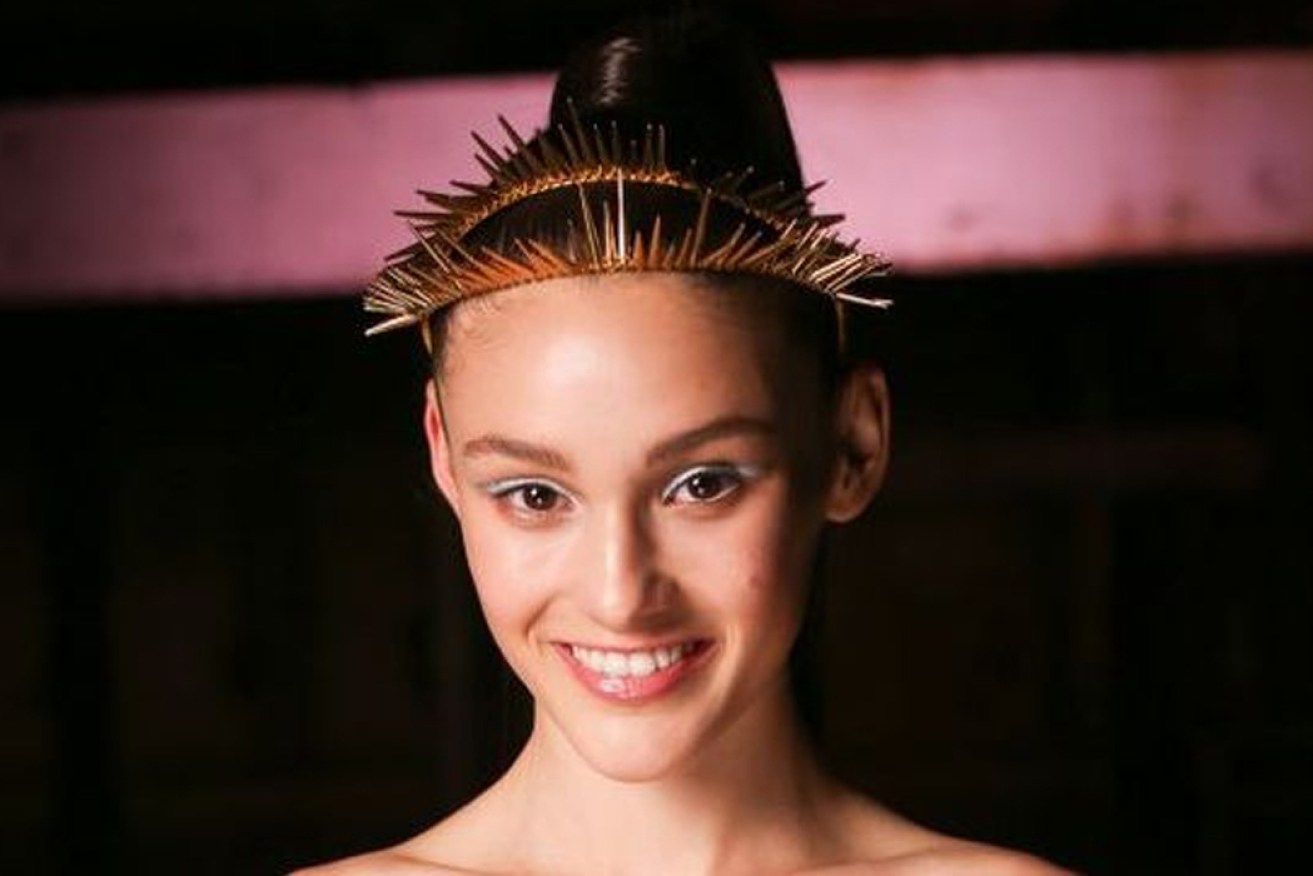The uncomfortable hypocrisy of Australia’s Next Top Model


While Aleyna rightly celebrates her big win, there's still something not right at Australia's Next Top Model.
The finale of Fox8 reality show Australia’s Next Top Model on Tuesday night saw series favourite, 17-year-old Aleyna Fitzgerald, crowned the winner.
The show sees young girls, most still teenagers, aspiring toward a high-fashion modelling career as they compete to avoid elimination each week by a panel of high-profile judges.
The format is not that different to other talent shows, where contestants are evaluated on how they cook, sing, dance, or perform. Except that ANTM is a little more insidious. It’s about how they look.
And unlike critiquing a person’s cooking or singing, which is more easily separated from their identity, research shows that body image concerns are closely linked to other mental health conditions such as depression and anxiety.
Admittedly, nobody watches Australia’s Next Top Model for its moral compass, but it could be argued that the show has a big impetus to take mental health very seriously.
In 2014, former judge Charlotte Dawson was found dead after many years living with depression. In the years before her death, she experienced vitriolic online bullying.
Alex Perry, her close friend, has been treading a very fine line by advocating for his friend and her anti-bullying stance, and at the same time staying true to his reputation as the ‘mean’ judge on ANTM.
I followed the story of one girl in particular this cycle, because I felt it really highlighted everything that’s wrong with the way mental health problems are understood in society.
Daisy, 19, finished third in the competition, having made it that far in spite of the anxiety that has “crippled” her since childhood. She was interesting to watch because she was actually quite articulate when she spoke of her anxiety.

Daisy understood how her anxiety affected her. Photo: Fox 8
She understood that it would make her hypersensitive to the negative emotional cues of others, like the steely-eyed glare of the Italian designer she walked for in Milan.
She explained how, in an underwater challenge earlier in the season, her body just went “into drowning mode” and she felt like she needed to get out of there.
But everyone around her needed a lesson in Mental Health Literacy.
The look on Cheyenne Tozzi’s face when Daisy had her first ANTM anxiety attack pretty much summed it up.
This was just after Tozzi, one of this season’s ‘mentors’, told her: “I think you’re just crying for no reason.”

Cheyenne Tozzi’s face after learning Daisy was suffering from anxiety. Photo: Fox 8
The judges weren’t much better.
Jennifer Hawkins introduced Daisy’s turn to strut the catwalk in episode 6 with: “Next up is Daisy, she’s probably the most frightened of them all.”
Megan Gale added: “Oh she’s terrified”, and Alex Perry chimed in with “Daisy looks completely freaked out, her eyes are darting all over the place”, followed by “She is kind of not coping”.

ANTM‘s judges need a lesson in mental health literacy. Photo: Fox 8
These are all fair observations, but where’s the part of the show where we see the mentors and judges providing support for a teenage girl showing visible signs of distress?
They weren’t any better to her face, either.
In spite of her anxiety attack, Daisy pulled off a great photo, allowing the producers to portray a heartwarming story of overcoming the odds, and prompting Perry to suggest “You should have anxiety more often”.
No, she shouldn’t.
Mental health problems are serious
The words of the ANTM judges and mentor reflect a dangerous rhetoric that seems all too prevalent in today’s society: that people with mental health issues should just get over it.
National statistics reveal that one in four young people have experienced a mental health problem in the last 12 months, and there is concern that a large number of those don’t seek help.
There’s an expectation that since we can sometimes exert control over our thoughts and feelings, people who can’t are just not trying hard enough.

Girls are critiqued on their appearance, among other things. Photo: Fox 8
It’s not enough to encourage people with depression to ‘think positive’, or to tell people with anxiety to ‘toughen up’. These messages, albeit usually well intentioned, show a lack of understanding and support at a time when it is needed most.
Daisy didn’t get booted out last week because of her anxiety. She was booted because she couldn’t get her mouth right in photos.
I wonder, however, whether with the appropriate support, she might have been able to let go of the tension in her jaw (a common symptom of anxiety) that I suspect was behind the mouth issues that plagued her all season.
Anyone who might be feeling symptoms of depression, anxiety or mental illness should contact Lifeline on 13 11 14.
Dr Melissa Weinberg is a research consultant and psychologist, specializing in wellbeing and performance psychology. You can view her TEDx talk here








